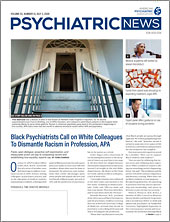“Our lives begin to end the day we become silent about things that matter.”
—Rev. Martin Luther King Jr.
The entire nation is watching as our nation has undergoes a very painful chapter in its history. The seeds of this suffering were planted hundreds of years ago. When a relationship between people begins with forced enslavement and family separation, and personal and intergenerational trauma, it results in a vast and pervasive trust deficit from its very inception. There have been countless opportunities for the citizens of this nation to repair and rebuild this relationship; however, to this day our African American sisters and brothers still do not have equal access to basic rights such as health care, education, protection of the law, and freedom. It has been absolutely heartbreaking to see the impact on those individuals whose lives have been irreversibly changed by recent events, and even more chilling to think of the countless families who have suffered silently without a voice in our nation’s past.
Many of us have felt a sense of great heaviness, sadness, frustration, powerlessness, hopelessness, and helplessness as we watched parts of our cities come apart, even if we fully understood the sequence of events that led to such events unfolding. Nonetheless, feeling uncomfortable can be a powerful tool to understanding and ultimately challenging our deeply held beliefs. Sometimes we may be completely unaware of biases that we have until we feel an uncomfortable physical sensation in our bodies, emotional reactivity and defensiveness, a mental block, or avoidance. However, when deeply accepted and understood, feeling uncomfortable can be a blessing in disguise. It can offer a rare glimpse into the windows of our souls, which are usually clouded by day-to-day distractions and never-ending “to-do” lists. The uncomfortable feelings can allow us to redefine ourselves at the deepest levels of our emotional cores and release centuries of harmful beliefs. We may even be able to gain insight into the misguided thinking of our ancestors and shift this such that future generations can view the world in a wholly different way. It is worth noting that our uncomfortable feelings do not represent a drop in the proverbial ocean of suffering that African American communities have experienced over the past centuries.
Can our uncomfortable feelings be channeled to propel us toward creating real, meaningful change in our communities? We can no longer afford to be innocent bystanders; otherwise, the events of 2020 will only continue. Many well-meaning psychiatrists, myself included, have written about health inequities in the African American community. Others have talked about the fact that there were fewer Black men in medical school in 2014 than there were in 1978. Many of us have opined from our academic ivory towers, citing our own research, about solutions to problems affecting the African American community.
In short, we have done a lot of talking, but how many of us have really listened to our African American colleagues? How many of us have really listened to African American community members? How many of us have been to an African American church? How many of us have had African American friends over to our homes? How many of us have asked our African American brothers and sisters what they want, what they need, and how we can help them get it? How many of us have asked African American community members about what would actually work on the ground in their communities or what would be practical for them? How many of us would consider ourselves part of an African American community? How many of us have sat with African American families as they relate the beautiful richness of their culture or the pain of intergenerational trauma?
Until we actually listen, we will always be seen as authority figures from the outside who may be well meaning but ultimately do not want to take the time to understand another perspective from our own. If we can harness the power of our uncomfortable feelings to gain a sense of empathy with our African American neighbors, we can truly plant the seeds for a new kind of relationship based on trust, listening, mutual respect, love, unity, togetherness, and, hopefully, someday healing. ■

